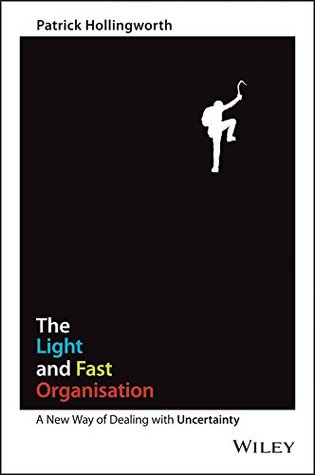Kindle Notes & Highlights
Read between
September 16 - September 24, 2017
We need to develop independent and interdependent people capable of making decisions either by themselves or within their teams (as opposed to passing it up the chain of dependency).
emotional intelligence,
Peter Salovey, John Mayer and Daniel Goleman. There are four stages to developing emotional intelligence:
Recognising the emotion. ‘What is the emotion that I'm feeling? Is it anger? Is it frustration?' Understanding the emotion. ‘I know why I'm angry. John didn't do what he said he'd do.' Handling the emotion. ‘Well, John has just got back from a day of sick leave so I shouldn't be too hard on him.' Expressing the emotion. ‘John, I'm frustrated that you didn't get that job finished, but I do understand it couldn't be helped given your recent illness.'
The notion of team building was often confused with team socialising.
Strengths-Based Leadership, Rath
‘if you spend your life trying to be good at everything, you will never be great at anything',
People who use their strengths at work are six times more likely to be engaged in their job. Organisations that fail to focus on the individual's strengths have only a one in eleven likelihood of their employees being engaged in their work. When an organisation's leaders focus on the strengths of their employees, the likelihood of employees being engaged increases to three in four.
Peter Drucker said: ‘Developing your strengths does not mean ignoring your weaknesses. On the contrary, one is always conscious of them.'
Organisations cannot operate light and fast if they are weighed down by layers of risk-management policies.
danger is fixed: something is either dangerous or it is not. It can by definition only be one or the other. If it is dangerous then there will be a consequence.
Risk, on the other hand, is not fixed, and nor, by definition, is it certain. Because risk is based on human perception, it cannot be fixed. The situational risk of an event can change based on the nature and experience of the person perceiving that risk.
(99U is the flipped version of TED: while TED is about big ideas, 99U is about making big ideas happen),
Get Better mindset in which, instead of demonstrating your existing skills, you focus on developing them. And instead of thinking about your performance relative to other people, you identify whether you are performing better compared to your old self: in other words, are you improving?
Get Better mindset helps people: enjoy their work find their work more interesting
think more deeply and invest more consideration in their work increase their creativity and engagement with their work build persistence when things go wrong.
Whereas expedition style is about becoming the best and winning at all costs, alpine style is about getting better, and enjoying the learning that comes with the journey.
The traditional linear and finite model of education no longer serves society, and it certainly doesn't serve our organisations.
We see education as being a finite game.
We all need to be futurists.
The three components are: Mission. This is about how we will launch projects in the new world. Engagement. This is about why we will want to do the work in the new world. Antifragility. This is about how we will adapt to the constantly changing ways of doing work in the new world.
Pink identifies three critical elements that contribute to creating work that is inherently motivating. These elements are: autonomy mastery purpose.
According to Pink, mastery requires three things: a person to be able to view their abilities (preferably strengths) as improvable a willingness to get uncomfortable an acceptance that true mastery is not possible (in other words, the Get Better mindset we learned about in chapter 11).
As Daniel Pink suggests in another of his books, titled A Whole New Mind, the future of global business belongs to the ‘right brainers', where creativity will become a competitive advantage to trump other commodities.


